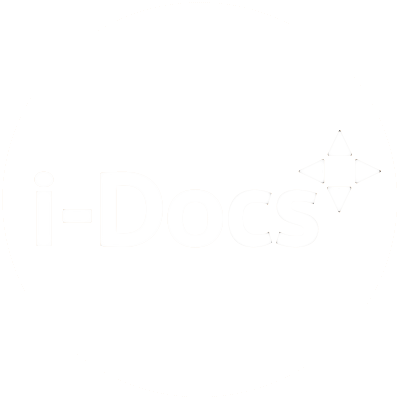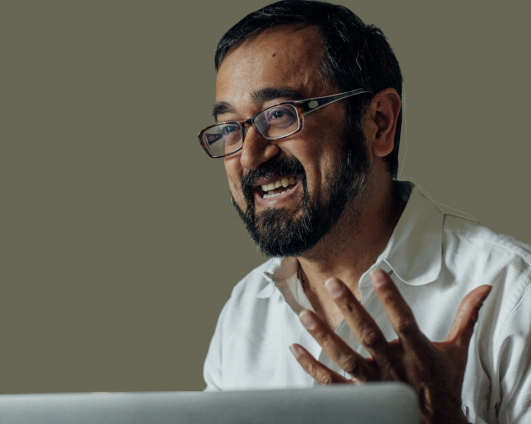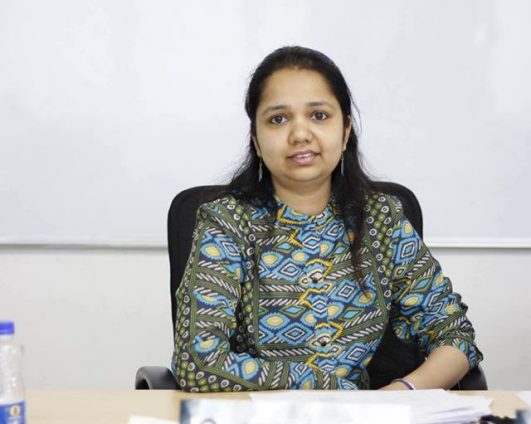i-docs in the Classroom
Aashish Kumar – Defying Gravity In Virtual Reality Pedagogy (Or How I Learned To Break Disciplinary Boundaries and Love The Code)
Shruti Nagpal – Am I becoming technology? Presenting Short Stories on Big Data and Computational Cultures
Marco Antonio Luna Barahona & Daniel Cross – Teaching and learning social interactive documentary filmmaking: Collaboration, co-creation and social engagement
Defying Gravity In Virtual Reality Pedagogy (Or How I Learned To Break Disciplinary
Boundaries and Love The Code)
While the industry buzz on VR grows to a deafening pitch, we in higher education are straining
to maintain existing core curricula in film, television, and interactive media, while seeking
professional development opportunities in virtual reality work so we can begin teaching it. This
panel will discuss how the author sustained a two-year-long effort at his institution to bring
awareness and excitement about the new medium to colleagues and students, undertook a
four-month crash course in developing for VR, brought together colleagues and students from
different departments to collaborate, and is currently teaching his University’s inaugural “VR
Storytelling” course. The author’s hope is to share the stage with others who are engaged in
developing VR pedagogy in higher education or elsewhere, and to discuss the following:
• How VR education strains against the boundaries of what students and faculty in the
classical film and television programs have been doing for years
• What interdisciplinary connections (Design, Computer Science, Fine Arts, Animation
Studies to name a few) need to be put in place for an environment in which VR can
extend beyond cinematic 360 video to hybrid forms involving synthetically designed
interactive virtual environments
• What preparation students working in VR technologies should undertake. For instance,
should there be pre-requisite courses mandated for students for such courses?
• How to build spaces for play inside academe to encourage the formation of new
sensibilities and to foster sharing of “language,” “code,” and “vision.”
• How to go beyond the introductory VR course to integrating immersive and interactive
learning within a larger interdisciplinary program.
4986 – Am I becoming technology?
Presenting Short Stories on Big Data and Computational Cultures
I tweet from my washroom, text from my kitchen, sleep with my device. These
constant interactions with technical devices make specific interventions in my notions and
identity of ‘self’. With the concepts of Robotics and Artificial Intelligence getting closer to
human biotic, with all of us moving closer to machines and devising new ways to experience
the immensity of being ourselves, I have been constantly asking myself- “Am I becoming
technology?”
In the first stage of my Practice Based Research Study that involves my participation
as a story teller researcher; I am collaborating with five work groups of 10 media students
each. Through a series of interactive workshops, participants create short fictional stories
related to big data, machine intelligence, and surveillance and present them to their peers.
These creative stories have situations and characters placed around various aspects of
technology, computational cultures and power apparatuses. Students perform these narratives
in the workshop and subsequently engage in discussions around them.
The first part of the workshop series began with the question ‘Who Am I’ where each
participant got around 60 seconds to introduce themselves to their peers. In today’s virtual
world of online existence and sharing, many students used their social media profiles like
Instagram and Twitter IDs (#along with hashtags) to raise questions of identity and self.
The stories authored and performed during the workshop revolve around screens,
experiential evolution of technology and body and socio cultural politics of machines.
I will present the outcome of the interactive immersive and innovative story telling workshop
through the Short Fiction Stories of students’ experiences of technology, surveillance,
big data, plastic money, security, privacy and vigilance.




